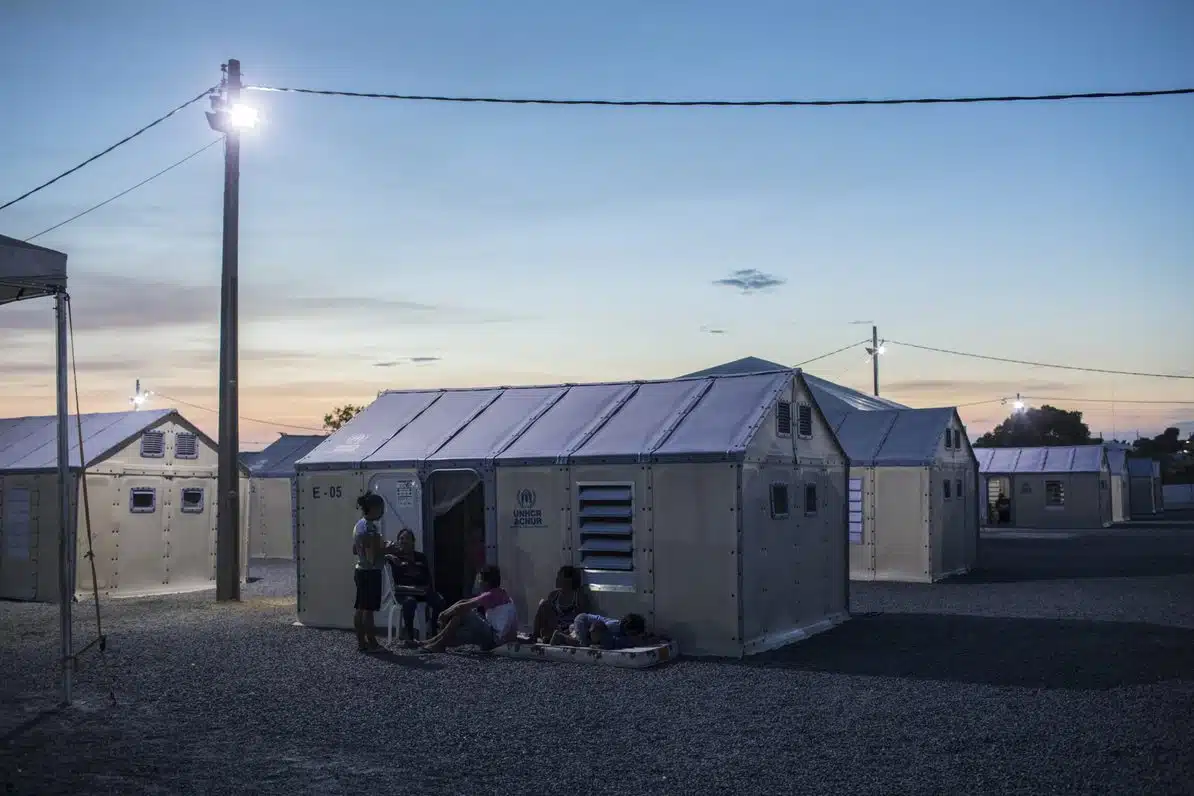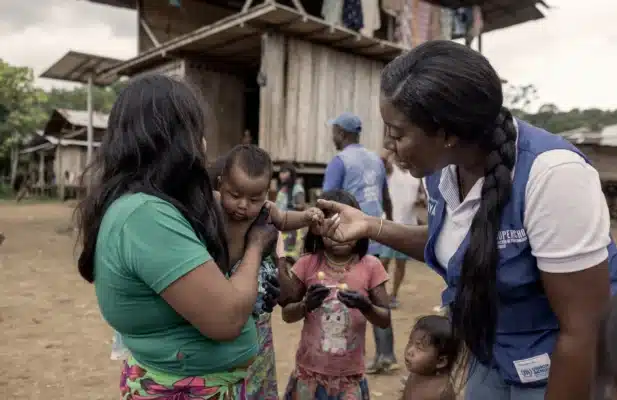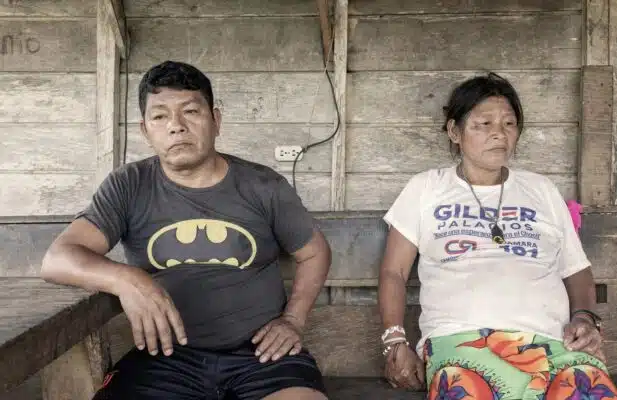
Maintaining safe spaces and shelters in border areas is among the activities that may be affected by UNHCR’s lack of funding in the Americas. ©UNHCR/Vincent Tremeau
Present in 26 countries in the Americas, UNHCR requires additional funding to ensure a sufficient humanitarian response, including solutions
PANAMA CITY – In a context of increasingly complex and challenging human mobility, UNHCR, the UN Refugee Agency, provides protection and assistance to 21.4 million people in the Americas. Faced with this record number in the region, UNHCR and its partners are confronting major challenges in their capacity to respond due to insufficient funding for their operations.
In underscoring the critical needs of their operations in the Americas, UNHCR and its partners also recognize concrete solutions being implemented by governments in the region for refugees, asylum-seekers, and internally displaced and stateless people – confirming their solidarity with, and commitment to, the protection of the most vulnerable people.
According to the “Critical Needs in the Americas” report, only a third of UNHCR’s financial needs in 2023 had been covered by the end of July – with donations received from individuals, the private sector and the international community. The report highlights the most critically underfunded operations, with persistent needs in Brazil, Colombia, Costa Rica and Honduras, among others.
In addition, the unprecedented figure of over 21.4 million people by the end of 2022 means that one out of every five people in need of protection and assistance worldwide was located in the Americas region. This represents a 25% increase compared to the previous year in the region.
“We strongly support the generous response given by countries to those with humanitarian needs, highlighting the importance of adopting a hemispheric approach, as set out in the Los Angeles Declaration on Migration and Protection, as well as the importance of cooperating on a regional level to strengthen international protection for refugees and stateless people. Nevertheless, the lack of funds jeopardizes critical activities, including shelter and humanitarian assistance, as well as financial support to cover basic needs and provide health care, which further hinders people’s ability to integrate and contribute to their host communities,” said José Samaniego, UNHCR’s Director of the Regional Bureau for the Americas.
Activities that could be adversely affected by the lack of funding include maintaining shelters and safe spaces in border areas; distributing lifesaving items; supporting access to refugee status determination procedures, as well as regularization and documentation processes; distributing cash assistance to vulnerable people; and carrying out child protection activities, as well as preventing gender-based violence.
In light of these challenges, throughout 2022, innovative solutions were implemented in several countries across the region to stabilize populations affected by forced displacement and support their inclusion. As part of the UNHCR #IBelong campaign, by the end of 2022 around 83,000 boys and girls born in Colombia to Venezuelan parents acquired Colombian nationality. Argentina, Brazil, Costa Rica, Ecuador, Honduras, Mexico, Panama, Paraguay and Uruguay adopted protection frameworks for stateless people as well as statelessness determination procedures, paving the way for them to be granted a nationality.
Millions of refugees and migrants in the region have benefited from regularization and documentation programs in countries in South America and the Caribbean throughout 2022. In Canada, for instance, around 18,000 refugees were granted permanent residency by the end of 2022. Similarly, there have been significant achievements with naturalization in Costa Rica, Mexico and the United States. Furthermore, significant results have been seen in resettlement programs in Canada and the United States – two countries that jointly received more than 76,000 resettled people.
Several municipalities across the Americas have also played an important role in protecting refugees by joining the UNHCR “Cities of Solidarity” initiative, which involves making commitments to protect and provide solutions for refugees.
Highlighting the importance of a hemispheric approach, as set out in the Los Angeles Declaration on Migration and Protection, UNHCR and its partners support several regional initiatives, including the Regional Inter-Agency Coordination Platform for Refugees and Migrants from Venezuela (R4V), the Comprehensive Regional Protection and Solutions Framework (MIRPS) in Mexico and Central America, and the Quito Process. These initiatives have remained active, bringing together governments, civil society organizations, development agencies and the private sector in promoting protection and integration solutions in the Americas.
Partnerships between UNHCR and international financial institutions – including the World Bank, the Inter-American Development Bank, and the Central American Bank for Economic Integration – have increased financing for host countries – including Colombia, Costa Rica and Ecuador. They have supported programs that document and integrate refugees, asylum-seekers and migrants, benefiting host communities as well.
“Addressing human mobility in the region requires a combination of actions with rapid impact and medium- and long-term processes. UNHCR is fully committed to joining these initiatives and to working with States and other interested partners in strengthening protection and solutions in all phases of displacement,” said José Samaniego. “At the Global Refugee Forum in December, countries in the Americas will be able to solidify their responsibility and commitment to provide solutions for forcibly displaced people and host communities across the continent.”
The English version of the “Critical Needs in the Americas” report is available here.
The Spanish version is available here.
For further information, please contact:
- Analia Kim, kiman@unhcr.org, +507 6898 1846
- Levon Sevunts, sevunts@unhcr.org, +1 613 286 6975





